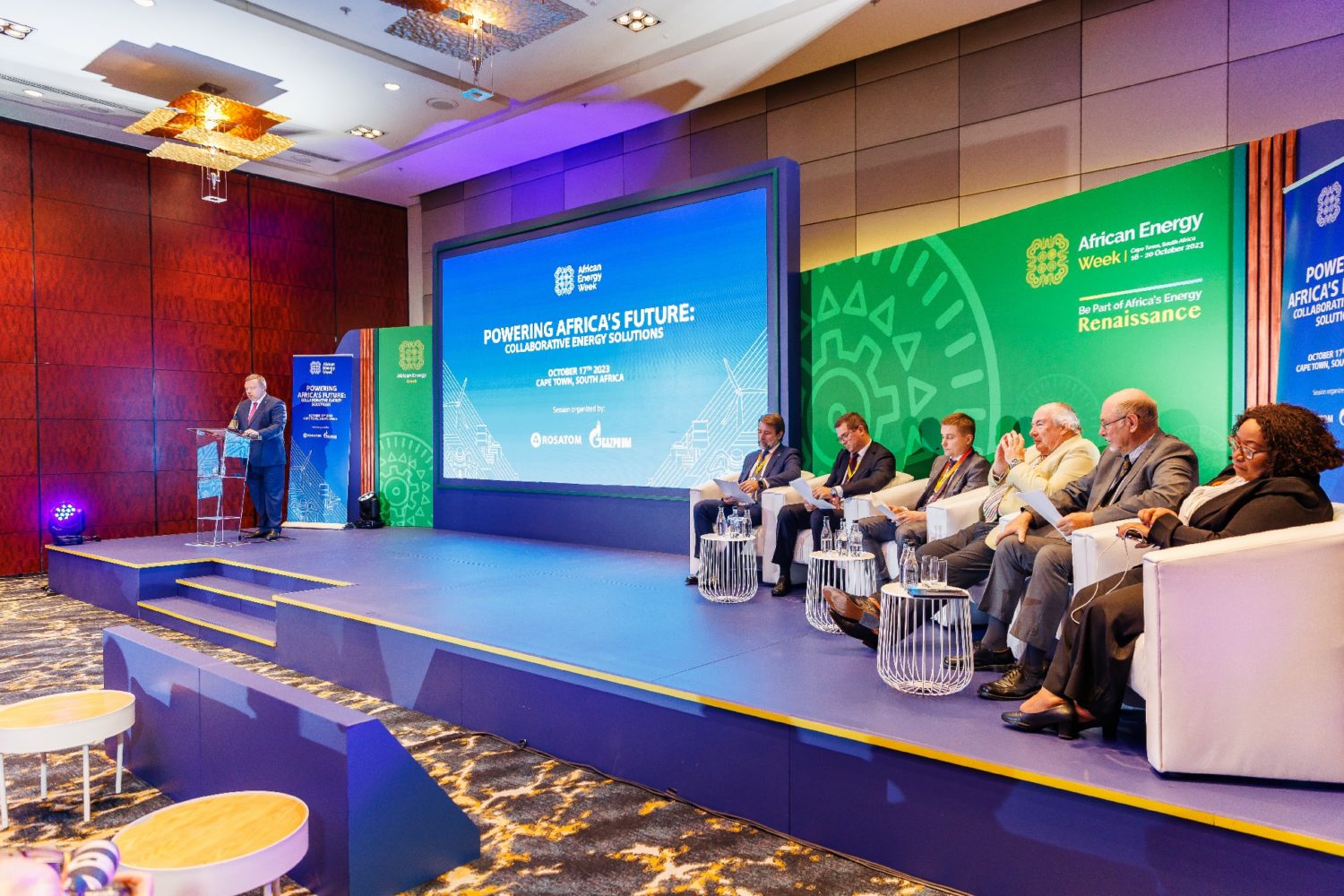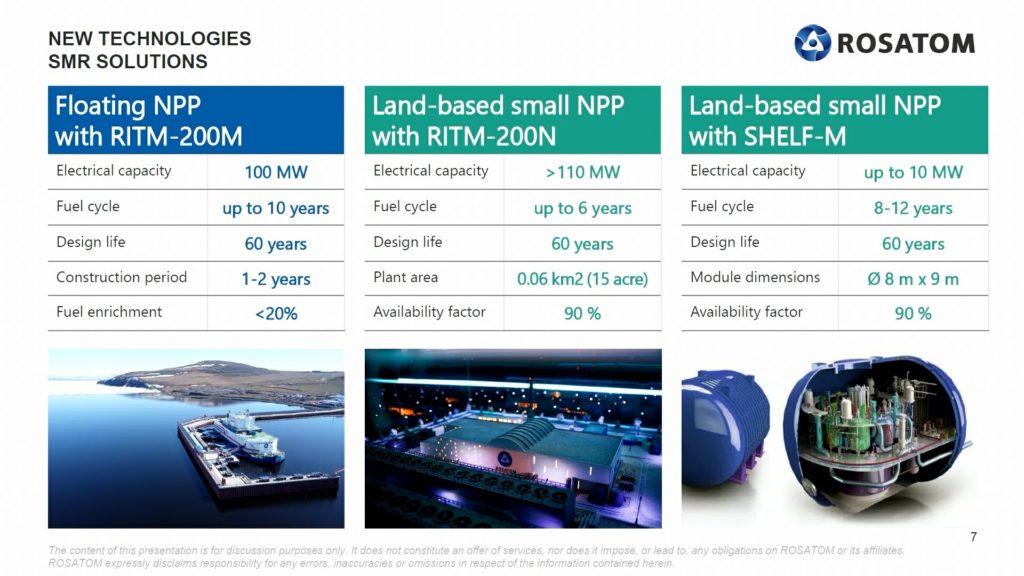
Tackling Energy Challenges with Atoms
back to contentsIn mid-October, South-African Cape Town hosted the African Energy Week. Rosatom speakers talked about solutions that can provide a response to the growing energy demand on the African continent.
More than a thousand African officials, energy company executives, businesspeople, analysts and public figures arrived in Cape Town to join the African Energy Week (AEW).
Speaking at the opening ceremony, Chairman of the African Energy Chamber NJ Ayuk noted that some 600 million people in Africa, or 43 % of the continent’s population, did not have access to electricity. “The energy sector, the companies and people working in it, are intended to improve living conditions in Africa and change the current situation, which is characterized by poverty and low incomes in numerous population groups on the continent,” NJ Ayuk said.
Energy transition was one of the key topics at the AEW. Cheick-Omar Diallo, TotalEnergies E&P spokesperson for Tilenga/EACOP Projects, recalled that Africa accounted for as little as 3 % of global greenhouse gas emissions and would account for no more than 4 % by 2050. “Africa is not responsible for the climate crisis, but Africa is paying the price,” Cheick-Omar Diallo noted.
That said, the energy transition must be fair and take into account Africa’s priorities, the speakers emphasized. According to Joseph McMonigle, Secretary General of the International Energy Forum, there is a gap between developed and developing countries in this field. “We need a multi-dimensional approach. There must be different ways to achieve energy security, economic development and transition,” said Joseph McMonigle.
Speaking at the Powering Africa’s Future: Collaborative Energy Solutions session, Rosatom and Gazprom representatives discussed solutions that could be a response to the growing demand for energy on the African continent.
Kirill Komarov, First Deputy Director General for Corporate Development and International Business at Rosatom, mentioned a wide range of nuclear generation solutions for every country to choose what suits it, from large nuclear power plants to small modular reactors (SMRs) and floating nuclear power plants (FNPPs).
Giving an interview to Energy News Africa on the sidelines of the conference, Kirill Komarov pointed out that Africa had always been an important partner for Russia and that the partnership had great potential in the field of nuclear energy.
“Our strategies are carefully tailored to meet the individual needs and objectives of each customer and region in Africa. Our approach is underpinned by the recognition that Africa is immensely diverse in terms of technology readiness, regulatory frameworks and specific energy needs. Our priority is flexibility and adaptability, ensuring that our offerings meet customer requirements and even exceed the expectations of each region,” Kirill Komarov said.

According to him, large nuclear power plants offered by Rosatom are an excellent choice for the regions with well-developed infrastructure and increased demand for electricity. Such plants guarantee a strong, reliable and long-lasting power supply, which is indispensable for a sustainable economic recovery and industrial development.
At present, Russia operates the world’s only floating nuclear power plant, Akademik Lomonosov. FNPPs exemplify adaptability, Komarov said. They are particularly well suited for isolated areas and islands for which conventional large power reactors would not be viable. “The total length of Africa’s coastline is around 30,500 kilometers. The indisputable advantage of Rosatom’s optimized floating nuclear power plants lies in their mobility: power generation facilities can be placed strategically along the coastline, close to Africa’s major ports, and easily increase power output when needed,” Kirill Komarov recalled.
SMRs also hold an important place in Rosatom’s product line. They are ideal for regions with moderate energy needs or a limited grid capacity. Their modularity ensures smooth integration into different energy landscapes, meeting their varied requirements and capabilities.
Cooperation with Africa is not limited to nuclear power projects, Kirill Komarov noted. Rosatom is focused on qualification improvements and knowledge transfer by supporting educational programs for African nuclear workers. “We are proud to have contributed to the nuclear curricula in Russia, where more than 2,000 African students are acquiring essential knowledge and expertise, striving to become the next generation of nuclear specialists and lead the industry in their respective countries,” Kirill Komarov said.
Rosatom is also interested in promoting non-power applications of nuclear technology as they offer tremendous benefits in medicine, agriculture and water management.
“Our plans for the future cooperation with African countries are multifaceted and strategically designed to yield mutual benefit,” Kirill Komarov said in conclusion.




